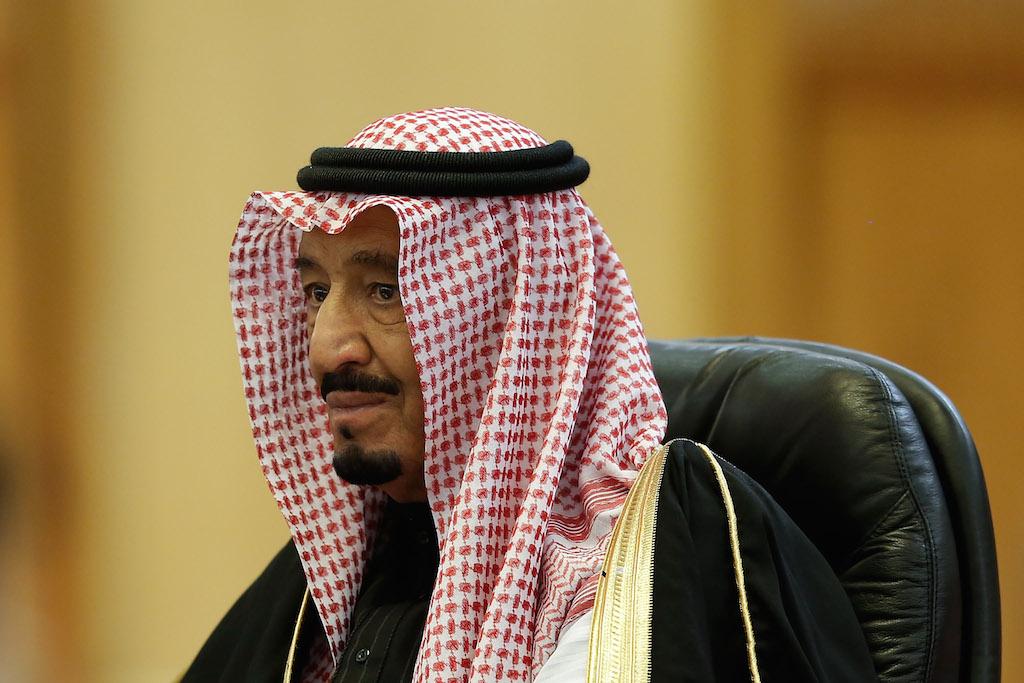Saudi Arabia’s new king might seem like the old one, but change is coming
Saudi Arabia’s King Salman bin Abdulaziz.
CAIRO, Egypt — As far as royal successions go in Saudi Arabia, this one was relatively smooth.
Following the death of King Abdullah bin Abdulaziz Al Saud, who sat on the throne since 2005 but was in effective control of the country since 1995, his half-brother Salman now rules the Kingdom.
Royal successions may be bland affairs elsewhere, but in Saudi they are of keen interest to a motley crew from around the world — from oil and gas traders to jihadists in Syria, for different reasons of course.
But Abdullah's death has brought long-standing worries about the repercussions of a succession crisis in the turbulent region to a head. It’s not this one that causes most concern, but who comes next.
If the rumours are to be believed, the newly-crowned 78-year-old ruler of Saudi Arabia — Washington’s close ally and the world’s largest oil producer — is “ravaged by dementia”.
However, for the last several months of Abdullah’s reign, Salman was chairing cabinet meetings and traveling on behalf of the monarch.
The continuity King
His health aside, what can the world expect from the new king?
Salman has held many critical political posts, among them defense minister, deputy prime minister and governor of Riyadh for nearly half a century — during which time the city grew to nearly 30 times the size it was when he came to power. His family controls much of the media in the country and he himself is known to have a broad network among its tribes.
Salman’s sons are accomplished in their own right: one was the first Muslim astronaut, another is the governor of Medina and a third reportedly flew the first airstrikes against the Islamic State in Syria in 2014.
A signal of his intentions came on the day after King Abdullah’s death, and the message seemed to be: more of the same.
"We will remain with God's strength attached to the straight path that this state has walked since its establishment by King Abdul Aziz bin Saud, and by his sons after him," Salman said in televised remarks.
At a time of turmoil in the region, Salman offers “continuity”, according to Bruce Riedel of the Brookings Institution, and is known for his role in adjudicating disputes in the Kingdom’s vast royal family. But it’s unclear how long said continuity will last — given his illness and age, his appointment can only be a temporary solution.
In May, King Abdullah named a deputy heir in what appeared to be a move to hold off feared infighting to come and potentially a sign of concern that Salman was unfit to rule because of his health.
Muqrin bin Abdulaziz Al Saud, a British-educated fighter pilot and former intelligence chief who at 69 is one of Abdullah’s younger brothers, was named heir to the throne after Salman — despite not previously being in the line of succession.
All of the previous crown princes who belonged to the group of full brothers known as the “Sudairi Seven” were born to one of the Abdulaziz’s wives Hassa bint Ahmed Sudair. Son of a Yemeni concubine who was never formally married to his father, Muqrin's appointment shook other royal branches, some of whom vented their disapproval on Twitter.
Kicking the can down the road
One of the main problems with choosing the next king in Saudi Arabia is that it is a young nation, founded only in 1932, and no clear succession process was ever set up.
The dissatisfaction over Muqrin is nothing compared to the potential scrap once the succession question reaches the next generation: the grandsons (don’t even ask about granddaughters) of Saud bin Abdul Abdulaziz — founder of Saudi Arabia as it is known today.
The current line of kings set the precedent for passing the throne from brother to brother, so whichever grandson inherits the mantle does so for his entire clan, and sidelines all of the others.
For the moment, the can has been kicked a little further down the road, but the country will soon have to face questions of succession and legitimacy that are the first of their kind in the relatively short history of the Kingdom.
In the meantime, King Salman has a lot on his plate. A newly erupted crisis has seen allies of Saudi Arabia's rival Iran virtually take control over the country on its southern border. Saudi is also a key player in the fight against the Islamic State.
There is also a massive youth population pressuring the kingdom to modernize and a generation of highly educated women that may herald changes that cannot yet be foreseen.
Hailed as a reformer by many, Abdullah may have paid lip service to reform initiatives, but he accomplished little in the way of the social progress more people are demanding.
In the last days of his rule, the secular blogger Raif al-Badawi was awaiting the second set of 50 lashes in a sentence of 1,000 for setting up the Saudi Arabian Liberals website and peacefully expressing his opinion.
Every day, reporters and producers at The World are hard at work bringing you human-centered news from across the globe. But we can’t do it without you. We need your support to ensure we can continue this work for another year.
Make a gift today, and you’ll help us unlock a matching gift of $67,000!
